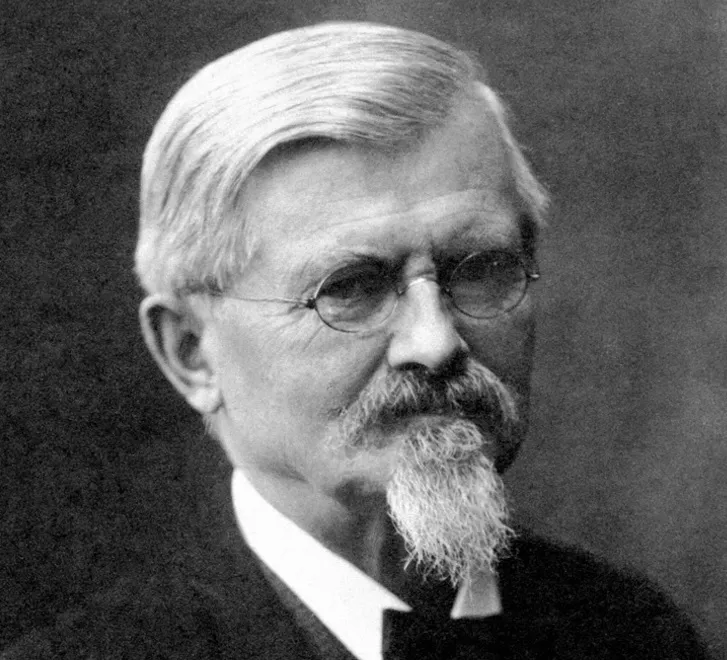
Wilhelm Maybach: Pioneering Innovation in Automotive Engineering
Wilhelm Maybach, a name that resonates deeply in the annals of automotive history, stands as an indomitable figure who shaped the trajectory of modern transportation through his exceptional engineering acumen, relentless pursuit of innovation, and unyielding dedication to perfection. Born on February 9, 1846, in Heilbronn, Germany, Maybach's journey is a testament to the power of passion and creativity in transforming industries.
Early Life and Education.
Wilhelm Maybach's fascination with machinery and engineering was ignited at a young age. His family's background in metalworking and his father's role as a master joiner laid the foundation for his mechanical aptitude. This inherent interest led him to pursue formal education in mechanical engineering at the renowned Stuttgart Polytechnic. Under the guidance of influential professors, Maybach honed his skills and developed a deep understanding of the intricacies of machinery and technology.


The Mentorship of Gottlieb Daimler.
Maybach's life took a transformative turn when he crossed paths with Gottlieb Daimler, a visionary engineer with a penchant for pushing boundaries. In 1865, Maybach began working at Deutz-AG-Gasmotorenfabrik, where he met Daimler. Their partnership marked the beginning of a groundbreaking collaboration that would forever change the landscape of transportation. Daimler recognized Maybach's exceptional talents and invited him to join his endeavors. Together, they embarked on a journey to develop internal combustion engines, an endeavor that would revolutionize the world of transportation. Maybach's profound understanding of engines and his ability to translate theory into reality was instrumental in their success. In 1883, Daimler and Maybach developed the world's first high-speed internal combustion engine, laying the groundwork for modern automobiles.
The Birth of the Automobile.
The collaboration between Daimler and Maybach culminated in the creation of the first gasoline-powered, four-wheeled vehicle. In 1885, they unveiled the Motorwagen, a vehicle that would go down in history as the progenitor of the automobile. Maybach's engineering prowess was evident in the vehicle's innovative features, including a single-cylinder engine, a belt-driven system, and a lightweight chassis. Their creation wasn't just a vehicle; it was a manifestation of human ingenuity and a glimpse into the future of transportation.


The Legacy of Excellence: Mercedes-Benz.
As Daimler and Maybach continued to push boundaries, their innovations attracted widespread attention. However, financial constraints and differing visions eventually led them to part ways with their previous company. In 1909, Maybach joined forces with Emil Jellinek, a wealthy businessman and automobile enthusiast, to establish "Maybach-Motorenbau GmbH." The Maybach brand became synonymous with luxury, precision, and innovation. Maybach's engineering brilliance was showcased in the development of high-performance engines and opulent automobiles that catered to the most discerning clientele. The cars boasted unprecedented levels of refinement, comfort, and performance. Maybach's attention to detail and pursuit of perfection earned him the admiration of the automotive industry and solidified his legacy as a pioneer in luxury automobile engineering.
Innovations and Contributions.
Wilhelm Maybach's contributions to the automotive industry extended beyond the creation of the Motorwagen and the establishment of the Maybach brand. His innovative spirit led to the development of numerous advancements in engine technology, transmission systems, and vehicle design. His concept of placing the engine near the vehicle's center of gravity, a principle still employed in modern car design, demonstrated his foresight and understanding of engineering dynamics. Moreover, Maybach's commitment to the pursuit of excellence influenced the broader automotive landscape. His dedication to quality and craftsmanship set a standard that continues to resonate in the luxury automobile sector. His work laid the foundation for the integration of advanced technologies, premium materials, and sophisticated design elements in high-end vehicles.


Influence and Enduring Inspiration.
Wilhelm Maybach passed away on December 29, 1929, in Stuttgart, Germany, at the age of 83. His death marked the end of an era, but his legacy lived on. The impact of his work was felt not only through the vehicles bearing his name but also in the continued advancements and innovations that his contributions had inspired in the decades following his passing. Wilhelm Maybach's legacy endures as a testament to his unwavering commitment to innovation, excellence, and the advancement of technology. His contributions continue to shape the automotive landscape, with his principles of precision and luxury remaining at the forefront of modern luxury car design.
eXus Dev 19.8.2023







































